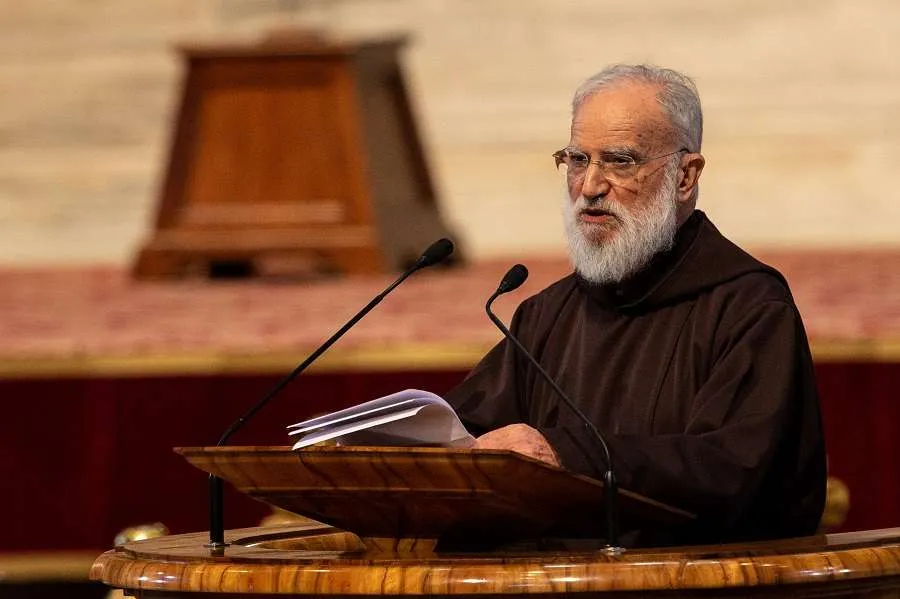The other positive fruit of the present health crisis is the feeling of solidarity. When, in human memory, have the people of all nations ever felt themselves so united, so equal, so less in conflict than at this moment of pain? Never so much as now have we experienced the truth of the words of a great Italian poet: “Peace, you peoples! Too deep is the mystery of the prostrate earth.”[5] We have forgotten about building walls. The virus knows no borders. In an instant it has broken down all the barriers and distinctions of race, nation, religion, wealth, and power. We should not revert to that prior time when this moment has passed. As the Holy Father has exhorted us, we should not waste this opportunity. Let us not allow so much pain, so many deaths, and so much heroic engagement on the part of health workers to have been in vain. Returning to the way things were is the “recession” of which we should have the most fear.
“They shall beat their swords into plowshares and their spears into pruning hooks; One nation shall not raise the sword against another, nor shall they train for war again.” (Is 2:4)
This is the moment to put into practice something of the prophecy of Isaiah whose fulfillment humanity has long been waiting for. Let us say “Enough!” to the tragic race toward arms. Say it with all your might, you young people, because it is above all your destiny that is at stake. Let us devote the unlimited resources committed to weapons to the goals that we now realize are most necessary and urgent: health, hygiene, food, the poverty fight, stewardship of creation. Let us leave to the next generation a world poorer in goods and money, if need be, but richer in its humanity.
--
The word of God tells us the first thing we should do at times like these is to cry out to God. He himself is the one who puts on people’s lips the words to cry out to him, at times harsh words and almost of accusation: “Awake! Why do you sleep, O Lord? / Rise up! Do not reject us forever! . . . Rise up, help us! / Redeem us in your mercy” (Ps 44, 24, 27). “Teacher, do you not care that we are perishing?” (Mk 4:38).
(Story continues below)
Does God perhaps like to be petitioned so that he can grant his benefits? Can our prayer perhaps make God change his plans? No, but there are things, St. Matthew explains, that God has decided to grant us as the fruit both of his grace and of our prayer, almost as though sharing with his creatures the credit for the benefit received.[6] God is the one who prompts us to do it: “Seek and you will find,” Jesus said; “knock and the door will be opened to you” (Mt 7:7).
When the Israelites were bitten by poisonous serpents in the desert, God commanded Moses to lift up a serpent of bronze on a pole, and whoever looked at it would not die. Jesus appropriated this symbol to himself when he told Nicodemus, “Just as Moses lifted up the serpent in the desert, so must the Son of Man be lifted up, so that everyone who believes in him may have eternal life” (Jn 3:14-15). We too at this moment have been bitten by an invisible, poisonous “serpent.” Let us gaze upon the one who was “lifted up” for us on the cross. Let us adore him on behalf of ourselves and of the whole human race. The one who looks on him with faith does not die. And if that person dies, it will be to enter eternal life.
"After three days I will rise", Jesus had foretold (cf. Mt 9:31). We too, after these days that we hope will be short, shall rise and come out of the tombs our homes have become. Not however to return to the former life like Lazarus, but to a new life, like Jesus. A more fraternal, more human, more Christian life!
--
Footnotes:
[1] Moralia in Job, XX, 1. [2] John Paul II, Salvifici doloris [On the Meaning of Human Suffering], n. 23. [3] https://blogs.timesofisrael.com/coronavirus-a-spiritual-message-from-brooklyn (Yaakov Yitzhak Biderman). [4] See St. Augustine, Enchiridion 11, 3; PL 40, 236. [5] Giovanni Pascoli, “I due fanciulli” [“The Two Children”]. [6] See St. Thomas Aquinas, Summa Theologicae, II-IIae, q. 83, a. 2







